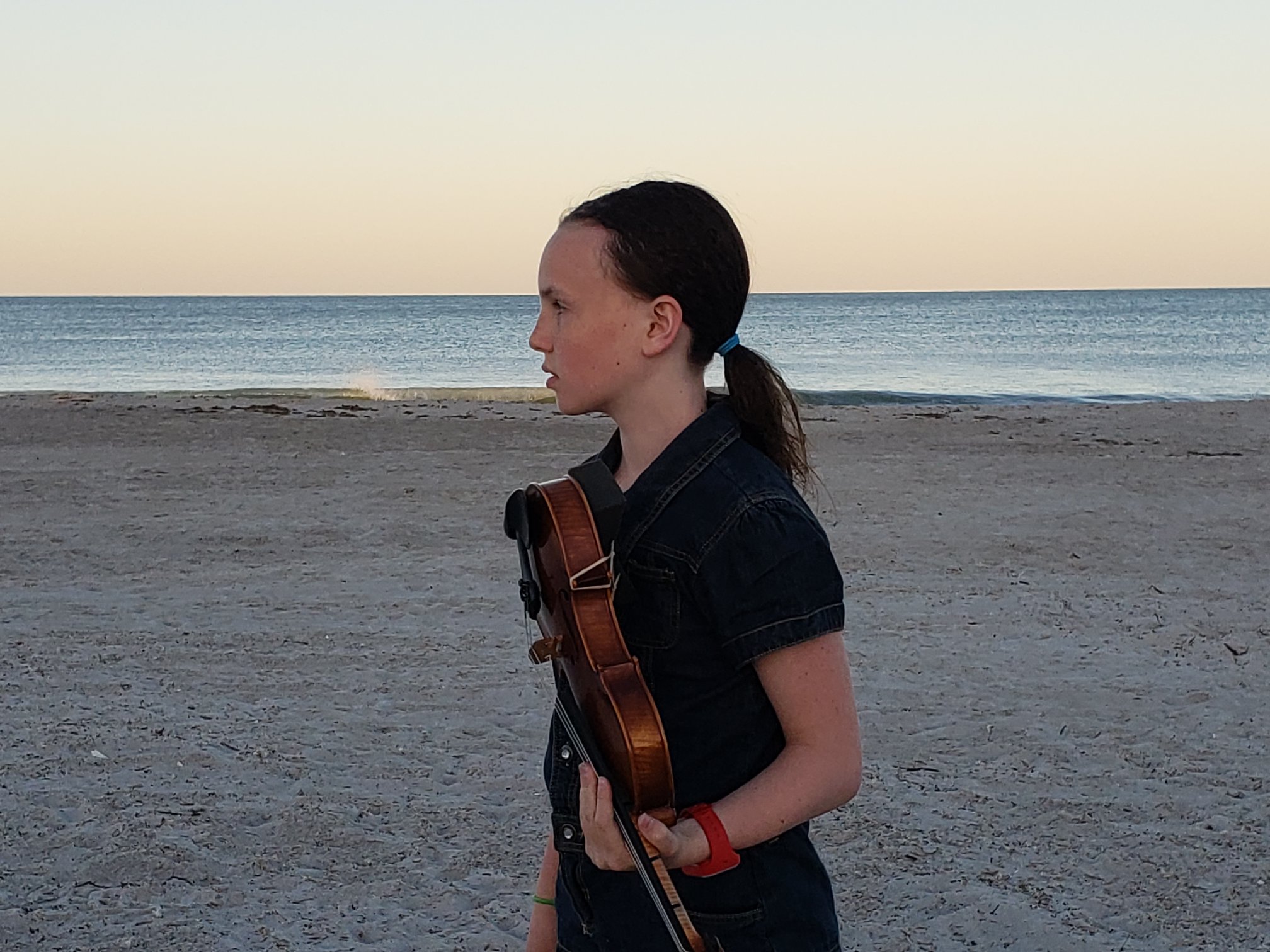Homeschooling: Applying Essentialism to Educating Children
Several years ago when my wife and I were preparing for our oldest child to go to school, we handpicked a nice K-12 private school that provided a great learning environment where moral and religious values aligned with ours were instilled right alongside a solid secular education. So that we’d have better access to the school, we even moved a half hour north to a home that was only ten minutes away from the location where we were pretty sure we’d spend a ton of time with not just our first child, but the other children that would follow.
My daughter enjoyed three years of going to that school (American Heritage School in American Fork, Utah) from kindergarten through second grade. Her younger brother joined her there for kindergarten and also loved his experience at the school.
However, after our third year of having kids attend the school, we took them both out and decided to start homeschooling.
Why would we do that?
When we made the decision in 2012, we didn’t really think about whether there was an official label or a particular movement associated with our choice to educate our kids at home rather than in the school system. Our decision essentially boiled down to this: we simply didn’t have time for school.
Don’t have time for school? What kind of reasoning is that?
My wife and I thought the same thing at the time, but it felt like the best decision.
I’ll give you more context about how we made the decision and some details that may help us seem a little bit more rational, although I’ll admit that when we tell this story to a lot of people they still don’t understand the reasoning.
My wife and I tend to be very assertive people, especially when it comes to parenting, a role that we prioritize above pretty much any other outside of our relationship with each other and our relationships with God. That assertiveness tends to cause us to regularly take a look at how we’re doing things with our family and evaluate whether we need to make any changes.
Although my kids both loved going to school, we noticed a pattern that was concerning for us in regards to our family dynamic. During our daughter’s first grade year, we’d get her off to school around 8am. She didn’t get home until close to 4pm. Ultimately, it began to feel like the school day was longer than it needed to be, especially when we considered everything else that we felt our kids should be involved in during the day.
My wife and I decided early on in our marriage that we wanted our kids to have a range of experiences that included things that were highly physical, such as sports and athletic competition, as well as things that were more cultural and academic, including music and personalized study opportunities. We wanted them to have experiences that would help them develop their personalities and understand how things work in various real world environments. We also wanted our kids to learn how to be responsible by doing at least one or two chores each day that would teach them self-reliance. Most importantly, we also wanted to make sure that we spent valuable time with each of our kids.
During the second year of having our kids in the traditional environment for school, we started having discussions about how difficult it was for us to find opportunities to spend quality one-on-one time with each of them on a regular basis. After school, our daughter would typically have some homework. Then she had a half hour of music practice. Later she’d often have soccer practice or some other sports activity planned. When we added in having her help with a chore and a few other daily necessities, it was getting close to time for her to go to bed to start the process over again the next day.
A 2018 study that researched how much time families spent together put the figure at just 37 minutes per day. In an age when even younger kids often have their own smartphones, the amount of focused interaction between parents and children is even more limited, since spending time physically in the same space doesn’t necessarily mean actually spending time together. We didn’t want that to be our situation. We didn’t want to find ourselves down the road being parents to teenagers who really didn’t have a connection with us.
We needed more time interacting with our children than was available, considering the few other things we considered critical and also worth spending time on, when we enrolled our kids into school (even one that we considered a great school) for the bulk of the day. For us, needing more time with our kids meant that we had to make a choice, so we chose to switch to homeschooling.
Over the next several years, as our next two children turned four, we put them into a local preschool that lasted two hours, three days a week. The following year, we’d put them into the same LDS private school for a half day of kindergarten to give them the experience of being independent and associating with peers in a school environment.
After kindergarten, it was time to get down to business, so we brought them back home for school. Although we started our daughter on music lessons (the violin) soon after she turned two years old (she was mature beyond what we could have anticipated and was ready for music lessons even before we were), our boys are typically not ready to handle a 30-minute or more lesson and daily practices until they are about six years old. That timing fits with their graduation from kindergarten and their introduction to homeschool, which involves practicing a piano, guitar, cello, or other musical instrument.
My Introduction to Essentialism
For the past year or more, my wife and daughter have had a regular habit of stopping by my basement office and mentioning something they’ve learned from the latest self-improvement book they’re reading or listening to. One of the books that kept being brought to my attention was one by a fellow named Greg McKeown called Essentialism. Ironically, because of all the stuff I’ve always got keeping my attention, I never had time to read the book.
However, on a recent trip across the country, my wife brought with us the audiobook version of Essentialism. I learned a ton from the book, and I was convinced (although I’m still not disciplined to practice it religiously) about the merit of the German idea of “weniger aber besser”, which means “less, but better” in English.
In his book Essentialism, McKeown gives lifestyle advice based upon his experience training executives to be more successful, more fulfilled in their lives. He compares “the undisciplined pursuit of more” with the “way of the essentialist”, which involves establishing a pathway that focuses on “the disciplined pursuit of less, but better.”
Essentialism, as presented by McKeown, involves intentionally and purposefully removing things from your life that are not in line with your highest purpose so that you can focus on the most critical, vital things. Essentialism involves not being afraid of telling people no, with the full understanding that there are opportunity costs involved when you commit to something.
Applying the concept of essentialism to our approach to educating our children, we at least subconsciously added up the value that our kids would receive by going to school (subtracting from that amount negatives such as picking up bad habits, exposure to bullying – yes, even from kids going to a religiously-based private school – and similar issues that we often had to correct at home) and compared it against the value we felt they’d receive by being able to receive musical training and learn an instrument, play on sports teams, and also spend quality time with their parents almost every single day.
Although we hadn’t been exposed to the concept of essentialism and “less, but better” at the time, the decision we had made to say no to getting on the conveyor belt that everyone in the neighborhood used to set their schedules was based on that exact concept.
As I listened to the audiobook while traveling across the country with my family, I mentioned to my wife, “I’d be very surprised if this guy doesn’t homeschool his kids.”
That comment led to a discussion of how our decision to break from the stream of what’s considered normal and most acceptable by society (although homeschooling is becoming much more popular than it was when I was growing up) with the purpose of being more efficient, more intentional about how our children receive their education felt very much in line with the idea of Essentialism. My wife and I discussed whether anyone who believes in the concept of Essentialism would ever put their kids into a regular public or private school versus choosing one of the alternatives, including homeschooling, that give them much more control over how they spend their time.
I’d guess that you don’t find many children of Essentialist leaning parents in public schools, except in situations where parents do feel like that setting is the best option for their children to learn and for their family dynamics generally.
Wasted Time, Wasted Opportunity
The New Teacher Project (TNTP) published a statistic in its research entitled, “The Opportunity Myth”, in which it estimates that high school students spend three-fourths of their time on assignments that are not grade-appropriate. The result of such wasted time is a lack of preparation for college, which also contributes to the difficulty high school graduates are having completing college in a timely manner. That situation has contributed to a student debt crisis.
My response to that statistic, thinking from an Essentialist perspective, is, “Why stop at the grade level when considering whether assignments are appropriate?”
Each child is so unique that even the grade-appropriate work they are doing is oftentimes not person-appropriate or interest-appropriate. Having come across the concept of Essentialism and the research that went into creating that sort of an epiphany about living a more proactive life reinforces the decision we made to homeschool.







